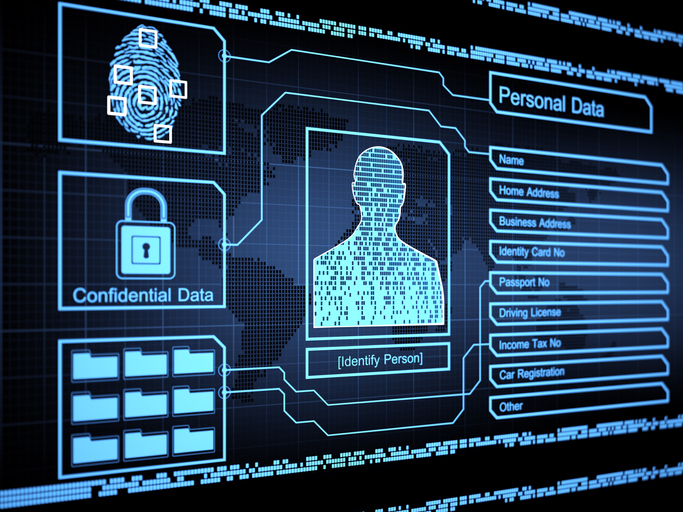Philadelphia resident and Athlone-born man Will Sweeney recently won the Philadelphia Business Journal’s 40 Under 40 Award for his achievements in the data security and privacy industry.
- Cybersecurity Blog
Continuous Data Privacy Compliance: Staying One Step Ahead
-
By Will Sweeney

If there’s one certainty in the world of data privacy and compliance, it’s that it’s always in motion.
Standards and regulations change. Cybercriminals’ methods evolve. Consumers place priority on the protection of their personal information.
Creating a data privacy program that’s current and in compliance isn’t a one-time endeavor. In fact, the worst thing you can do is not regularly revisit & update your data privacy protocols.
Too often, organizations do just that. The consequences of a relaxed approach to maintaining a robust and compliant data privacy policy? Fines, lawsuits, and reputation damage.
Meeting the data privacy compliance parameters of today means being ready. We’ll explain what “ready” means, and show you how to adapt as the standards landscape changes.
Why Continuous Data Privacy Compliance Matters Now More Than Ever
Taking a “set it and forget it” approach to compliance all but guarantees you’ll fall victim to a data privacy breach.
Put simply, data privacy compliance matters to every type of organization — especially those that think it doesn’t. Chances are businesses and other entities not paying attention to the latest data privacy standards are out of compliance. They’ll likely deal with the fallout of being out of sync with regulations and standards.
With standards and regulations constantly coming or changing, continuous data privacy compliance is an integral part of running an organization that people have confidence in.
What’s created the need for continuous data compliance? A few key factors:
Evolving Threat and Risks
There’s nothing more enticing to a cybercriminal than private data. There’s a lot they can do with it — from using consumer’s personal info to gain access to their finances to holding an entire operation hostage with a steep ransom price. A data privacy breach can have catastrophic effects on thousands of victims.
As cyberdefense strategies adapt to block cyber threats, hackers try new strategies to gain access to networks and their precious data.
It’s like a never-ending game of chess.
The Digitization of Business
Across all industries, day-to-day operations are light-years beyond what they were 20 years ago when the internet was still in its infancy.
Now, there’s hardly a company out there that doesn’t rely on a digital infrastructure to keep its operations up and running. Doctors’ offices and hospitals take, store, share, and maintain digital patient records. Apps on your phone allow you to buy groceries without going to a store. You no longer need to set foot in a bank to deposit a check.
With more business conducted online and data stored on networks, there’s greater risk for data breaches.
Government Regulations for Consumer Protection
Governments at all levels are now more proactive in making sure private information stays private.
The reason is simple: After so many high-profile data breaches, data privacy regulation is absolutely necessary to keep the public at large safe from becoming a cybercriminal’s latest victim.
As cyberattacks have become more sophisticated and frequent, data privacy compliance regulations have become comprehensive. They’re a far cry from 2003’s CAN-SPAM Act — laws and regulations such as the California Consumer Privacy Act (CCPA) or General Data Protection Regulation (GDPR) set strict standards for protecting private data and conducting business.
Maintaining Continuous Data Privacy Program Compliance
Meeting the latest data privacy regulations and standards may seem like a tall order.
It should. Uninterrupted data privacy compliance is a big undertaking for organizations of all sizes and requires constant attention.
So how do you tackle maintaining a data privacy program that’s robust, yet agile?
There are two options:
- Keeping work in-house
- Outsource
Keeping Work in-House
Is your organization stepping into the world of continuous data privacy for the first time or after a long period of inactivity? Remember the golden rule: Your efforts don’t start and stop with your IT department.
Data privacy compliance is complex and involves many elements of your organization — from the C-level executives to the marketing team and network administrators. Given how complex data privacy standards are, there’s hardly a part of a business or nonprofit that’s not affected.
Your legal counsel should 100% be involved in your effort(s). They’re the people who can best understand and interpret data privacy regulations, then draft policies that meet standards and laws.
Outsource
Not every organization has the capacity or staff to constantly maintain a data privacy program framework.
That’s where data privacy consultancy comes in.
While not a member of your staff, a data privacy consultant becomes part of your team. Its task? Making sure your data privacy control framework is always in line with the latest standards, no matter how frequently they change.
Data privacy consultants can take a deep dive into your existing data privacy infrastructure and make key recommendations and help your team implement changes for compliance.
Hiring an outside entity for data privacy compliance isn’t a “cost of doing business” so much as it is an investment in the digital security and integrity of your organization.
Continuous Data Privacy Compliance = Peace of Mind
Though data privacy compliance may seem like something requiring occasional attention, that’s far from the truth. Meeting the data privacy regulations and standards of today — and tomorrow — requires a continuous approach.
With a data privacy compliance program that’s always up to date, you can rest easier knowing your organization won’t be featured on the 6 o’clock news for a breach.
Data Privacy Program Compliance Consulting You Can Count On
Our team of data privacy experts is here to make sure you’re never out of compliance with the latest standards and regulations. Let’s talk about how we can help your organization. Set up a meeting with a Chief Information Security Officers today:
Share This Post
Explore solutions
Data Privacy, Security & Risk
Build or improve upon your data privacy policies and controls.
Platform Expertise
We tailors strategies to your unique risks and compliance needs, ensuring robust protection against cyber threats.
Regulatory Compliance & Frameworks
Zaviant's experts anticipate and mitigate cyber risks, safeguarding your data from diverse threats.






